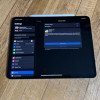Phone and laptop encryption guide: Protect your stuff and yourself

The worst thing about having a phone or laptop stolen isn’t necessarily the loss of the physical object itself, though there’s no question that that part sucks. It’s the amount of damage control you have to do afterward. Calling your phone company to get SIMs deactivated, changing all of your account passwords, and maybe even canceling credit cards are all good ideas, and they’re just the tip of the iceberg.
Using strong PINs or passwords and various Find My Phone features is a good place to start if you’d like to limit the amount of cleanup you need to do, but in this day and age it’s a good idea to encrypt your device’s local storage if at all possible. Full-disk or full-device encryption (that is, encrypting everything on your drive, rather than a specific folder or user profile) isn’t yet a default feature across the board, but most of the major desktop and mobile OSes support it in some fashion. In case you’ve never considered it before, here’s what you need to know.









































































